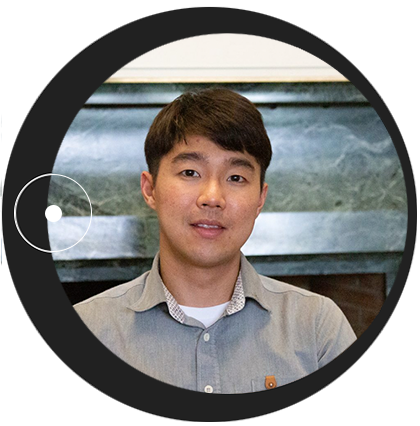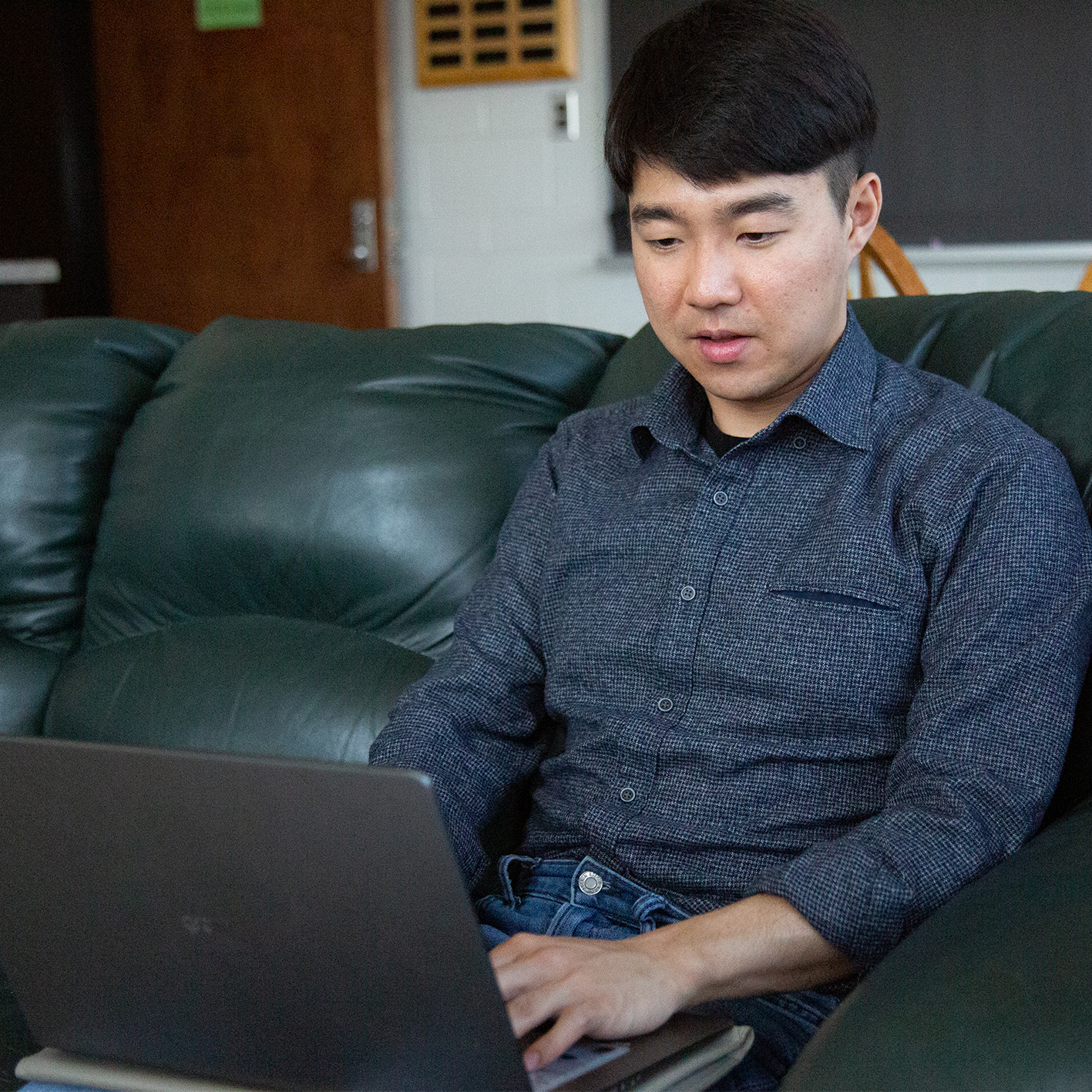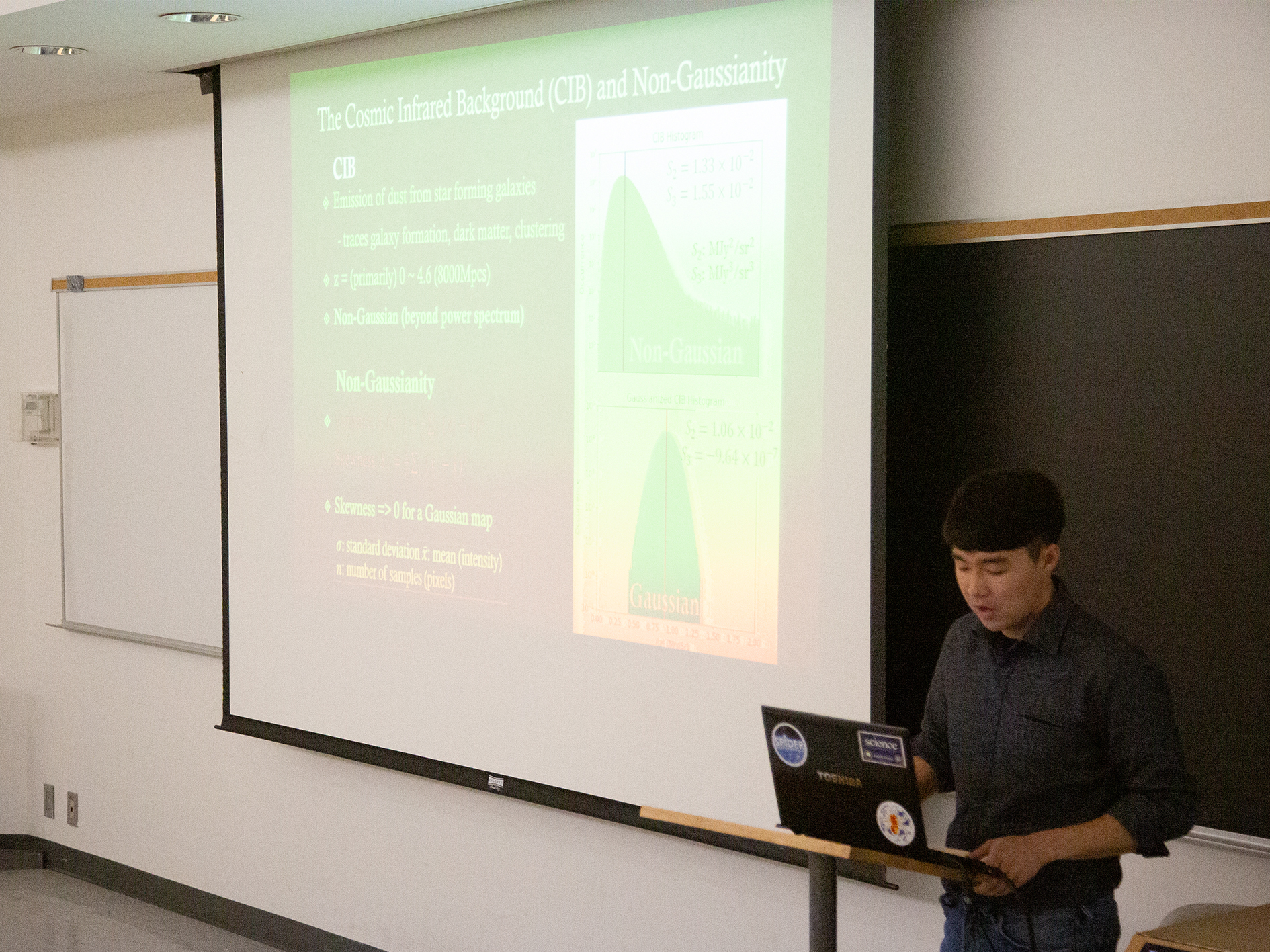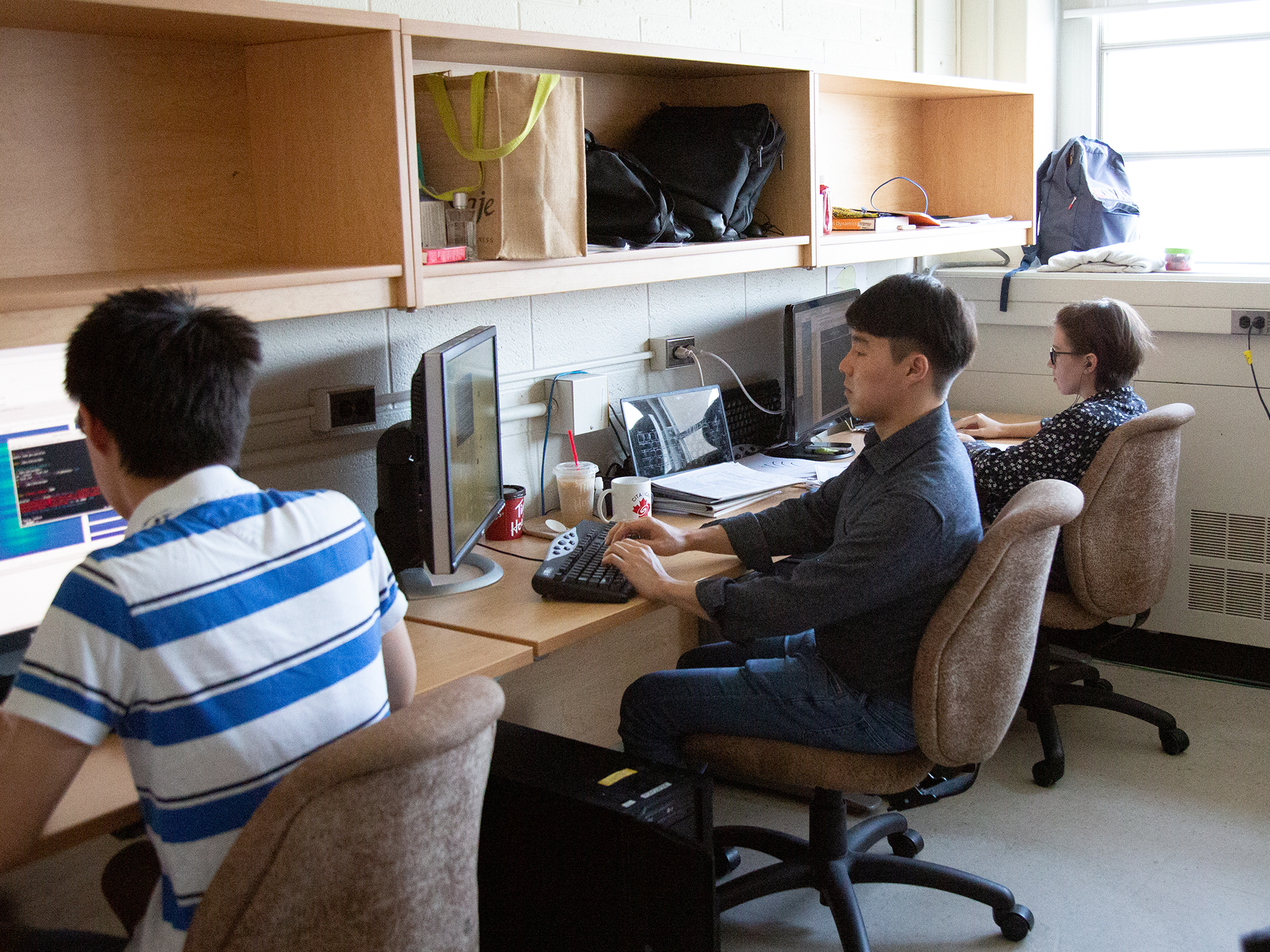main content begins

How did you first become interested in astrophysics?
It was quite a long time ago – I was in the 3rd grade. Although I’m originally from South Korea, I lived in California from 3rd to 7th grade. The language barrier was significant for me, and it took me a while until I was able to communicate with people. Near the end of the 3rd grade, there was a school project where students had to make pop-up books on Solar System bodies, and I was assigned the planet Venus. After doing the project, I got really interested in astronomy. Looking back, I think that because I couldn’t hang out with a lot of people due to the language barrier, I suddenly started to devour books and documentaries about the Solar System instead.
Tell us about your research project
I’m investigating the non-Gaussianity of the Cosmic Infrared Background (CIB) and its gravitational lensing (Pretty complicated title, I know -I had no idea what any of this meant a year ago). The CIB is mostly the emission of dust from star-forming galaxies. It provides clues to galaxy formation, dark matter, galaxy clustering, etc. The key point for my research is that the CIB is distributed over a very broad distance, which complicates gravitational lensing analysis. Additionally, it is a non-Gaussian background, meaning that its power spectrum does not contain its full information.
You spend a lot of time coding – what are you coding?
I’m using simulated maps for this project. I’m basically splitting up the CIB into multiple shells then using a program to lens each of the shells – shell by shell. By adding them up together, I can investigate quite accurately how the lensing affects the non-Gaussianity.
What are you enjoying most about the program?
I feel we have an amazing balance on our team. The post docs are really nice and encouraging. On top of that I realize there’s always at least one member of our team around, so that I can knock on their doors and ask questions whenever I have any. They are very enthusiastic about answering any questions I have, no matter how small they are. It’s great that I can always talk to my team about research, and that everyone is so passionate about their work.
What comes next for you?
I will be applying for grad school, primarily in North America. It would be great if I could come back to Toronto. I’ll be working toward a PhD in Astrophysics for sure. I do feel like research really fits me quite well as I truly enjoy interpreting data and trying to understand when something unexpected occurs. I really don’t like giving up, so in the long term, I am sure research would fit me well.


